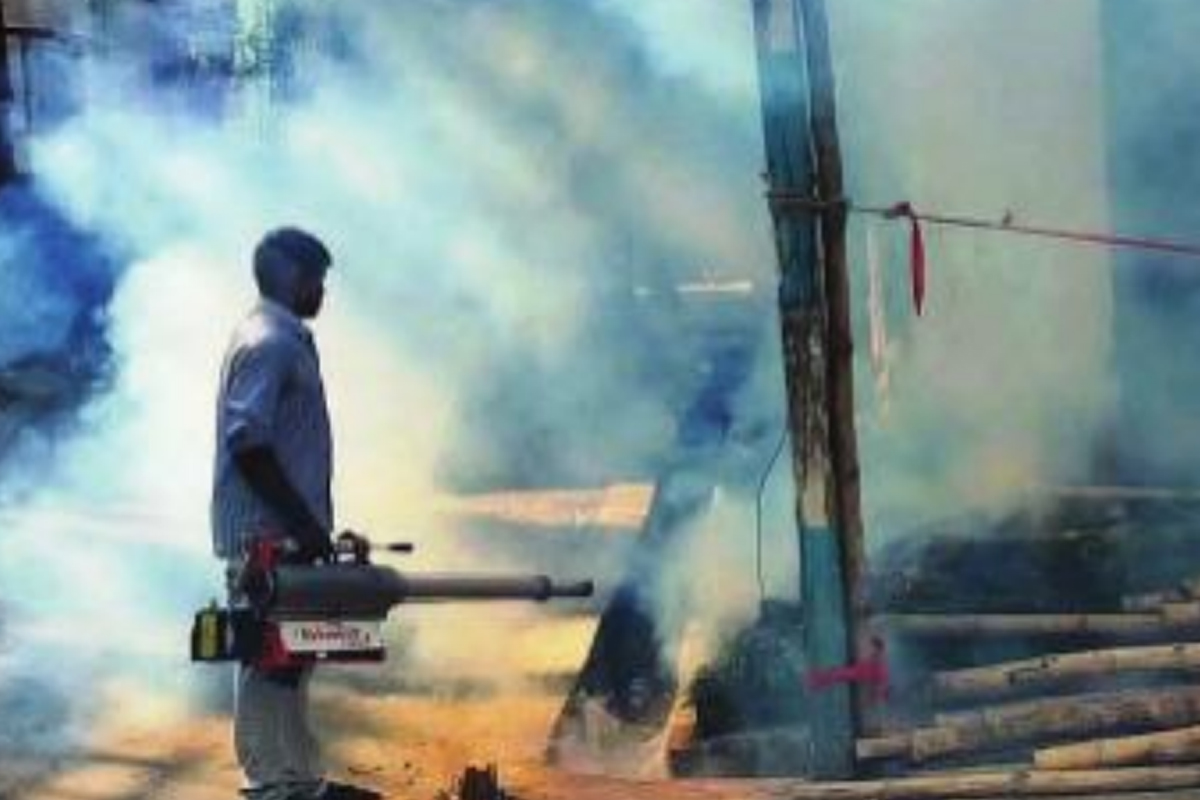Siliguri school gets national honour
This programme, scheduled on 28-30 October, aims to cultivate a spirit of community, hygiene, and social responsibility.
Dengue is generally spread by the Aedes aegypti species of the mosquito in urban areas, while the Aedes albopictus is usually found in rural areas and can exist in cold temperatures in winters in the region.

Photo :Screengrab (Epaper.thestatesman.com)
Health department officials are apprehending that the recent showers could lead to fresh mosquito breeding sites in Siliguri.
Entomologists believe that the prevailing weather conditions will help the mosquito population to go up.
The experts have advised focusing on spraying to destroy larval habitats. According to the public health professionals, civic body workers at the ground level should visit potential breeding sites and ensure no water has accumulated there.
Advertisement
The Met office has forecast thundershowers in north Bengal districts for the next few days. Siliguri received 74.6 mm of rainfall in the past 24 hours.
The professionals have warned that the heavy rains and the consequent drop in temperature had created a condition suitable for the spread of dengue and other viral diseases.
“The rain has created puddles and that could turn into breeding sites of the dengue virus carrying Aedes aegypti mosquito. Many artificial containers, discarded cups are also ideal breeding grounds. The low intensity rain creates small water pockets or pools of water. Therefore, people are advised to drain out stagnant water. The temperature will help viruses replicate faster. Garbage stacked anywhere should be cleaned to destroy potential mosquito breeding sites,” a public health expert said.
With showers leaving some areas replete with stagnant water, entomologists said the relatively dry and humid days may trigger a rise in the mosquito larvae population. They said focus should be laid on internal drains of households and fresh stagnant water in artificial containers there.
An insect biologist, Prof Dhiraj Saha, said focus should be laid on spraying now.
“This weather condition is ideal for the Ades mosquito to breed, as after a few days the temperature will rise. So after a fortnight from now, there will be a surge in the mosquito population. Therefore, this is the best time for the civic body to conduct intense fogging for the destruction of the potential breeding grounds,” said Prof Saha, who teaches insect biology at the North Bengal University.
Dengue is generally spread by the Aedes aegypti species of the mosquito in urban areas, while the Aedes albopictus is usually found in rural areas and can exist in cold temperatures in winters in the region. Entomological studies have, however, found a significant rise in and high density of the Aedes albopictus in civic body areas in the past few years.
The civic body had recorded around 5000 dengue cases and at least 23 dengue-positive persons had died till early December last year.
Advertisement